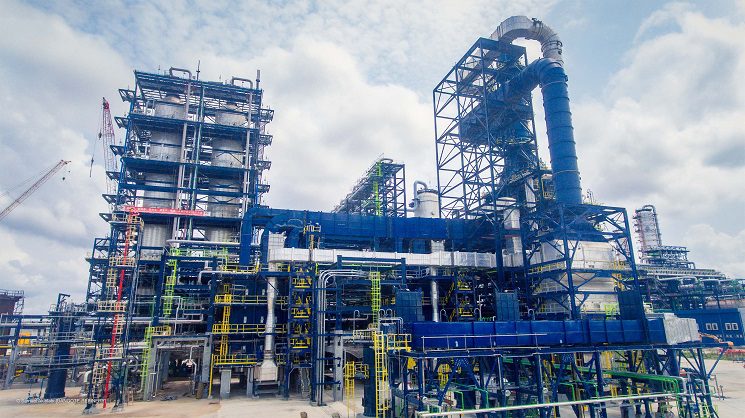The Federal Government of Nigeria is poised to cut the daily crude oil allocation to the Dangote Petroleum Refinery, currently at 300,000 barrels per day (bpd), as Warri and Port Harcourt refineries resume operations under the Nigerian National Petroleum Company Limited (NNPCL). This adjustment aligns with the naira-for-crude initiative designed to strengthen local refining capacity and enhance competition in the downstream oil sector.
The revival of Warri and Port Harcourt refineries marks a significant shift after years of neglect and heavy reliance on fuel imports. Combined, these facilities now contribute 135,000 bpd to Nigeria’s domestic refining capacity.
Implications for Dangote Refinery
As part of the naira-for-crude framework, 450,000 bpd of crude oil is earmarked for domestic refining. The Dangote Refinery, which initially received 300,000 bpd, will now share the allocation with other operational refineries, including the newly restored Warri and Port Harcourt plants.
“The only solution to this impending crude supply cut is increasing oil production,” a source close to the matter noted, emphasizing the need for upstream expansion.
The Dangote Refinery may need to rely on crude oil imports, which are subject to global pricing, should its domestic supply drop.
Launched as an intervention to mitigate foreign exchange volatility, the naira-for-crude initiative also aimed to lower petrol prices. However, with additional refineries coming online, the government faces challenges in maintaining equitable crude distribution.
Additionally, the Federal Government has ceased credit-based crude sales, requiring refineries to make advance payments for crude allocations. While this move boosts revenue collection, it has drawn criticism from refiners over tightened cash flows.
Growing Domestic Refining Capacity
The Nigerian Upstream Petroleum Regulatory Commission (NUPRC) has projected that domestic refineries will require 123.48 million barrels of crude oil between January and June 2025. The Dangote Refinery alone accounts for 99.55 million barrels within this period. Other operational refineries, including Warri, Port Harcourt, and Kaduna, will share the remaining allocation.
The government has launched strategic initiatives, such as Project 1 Million Barrels, to increase daily crude oil production to over 2 million bpd. This aligns with Nigeria’s goal of bolstering its domestic refining capacity and achieving self-reliance in petroleum production.
The impending crude reallocation is a pivotal step toward creating a robust and competitive downstream sector. However, the success of this policy hinges on increased oil production and effective collaboration between refiners and regulators.
As Nigeria navigates these adjustments, the focus remains on fostering a sustainable petroleum industry that supports both economic growth and consumer affordability.
Stay tuned to 9am News Nigeria for more Breaking News, Business News, Sports updates And Entertainment Gists.
















